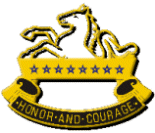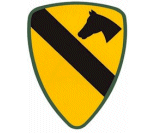DIGIJOURNAL 025--11 AUGUST 2007
DATELINE: 11AUG07 CAMP ANACONDA
Greetings from Camp Anaconda.
It appears that we may have passed through the worst part of the summer heat. While it is still unbearably hot, especially for our guys who conduct dismounted operations, the mornings at least have grown a little cooler than they were a few weeks ago. Think of it as going from extreme pain to pain.
Often I will write about our soldiers who leave the FOB every day to go out on patrols and face the enemy. Sometimes I forget to mention all of our soldiers who do the often unglamorous work of keeping the battalion running. Sections like S6 (commo), the cooks, maintenance, S2 (intelligence), S4 (supply), S3 (plans) are just a few of the many sections that, though they may not face the same danger that a dismounted armor or infantry soldier might, are vital to keeping our equipment ready and safe and keeping our soldiers in the fight. Every soldier is important to the mission. We may not make movies about them, and we often do not think of them, but we would not be able to function without them.
I thought that as we grew accustomed to wearing our body armor that the annoyance of wearing it would fade. I thought it would get lighter as the deployment lengthened. The opposite has happened. Every time I pick up the flak vest it feels like it has gained another pound. It is such a pain to wear in the heat, and I do not even have half the weight some of our soldiers carry since I do not need ammunition. Despite the impression that some media shaped by reporting that the body armor we use is faulty, it absolutely saves lives. The vest works. While it may be a pain to wear, we always have the alternative to motivate us to keep it on, despite how our body groans underneath it.
The last item for this entry concerns the interesting feedback I have received to the posts in this blog. I spoke with some soldiers at breakfast at Patrol Base O’Ryan, and as we conversed they brought up this website. I did pause for a moment, because I knew that the harshest yet best critics of what I wrote would be the soldiers I write about. They told me (and I think they were being honest, or as honest as they could be to the chaplain without ripping into his opinion) that it was “pretty good,” which I took to mean around the C+/B- range. The number one critique is that they wanted more pictures, which I will correct this week.
Thanks to you for keeping us in your prayers. We are definitely at a very difficult part of our deployment, and our soldiers truly appreciate all the kindness and support that you give to them.
Gratia et Veritas,
Warhorse Archangel
CHAPLAIN'S BOOKSHELF
The Cloister Walk
By Kathleen Norris
 This is a wonderful collection of essays and reflections by an author who had drifted away from the faith of her childhood faith but then returned via two paths when her Protestant (Presbyterian) roots combined with her experience as a lay member of a Catholic (Benedictine) order. Ms. Norris touches on such far ranging topics as life on the Western Plains of North Dakota, the challenges of teaching poetry to elementary school children, and the shaping struggles of marriage, all through the eyes of a very modern believer who is nonetheless grounded in the very ancient traditions of Christianity. A very good read for those who wish to discover the gifts of the contemplative life.
This is a wonderful collection of essays and reflections by an author who had drifted away from the faith of her childhood faith but then returned via two paths when her Protestant (Presbyterian) roots combined with her experience as a lay member of a Catholic (Benedictine) order. Ms. Norris touches on such far ranging topics as life on the Western Plains of North Dakota, the challenges of teaching poetry to elementary school children, and the shaping struggles of marriage, all through the eyes of a very modern believer who is nonetheless grounded in the very ancient traditions of Christianity. A very good read for those who wish to discover the gifts of the contemplative life.
The Moon Is Down
By John Steinbeck
 In 1941, the Noble Prize winning author, John Steinbeck, was asked to write a play for the Office of Strategic Services as part of a counterpropaganda effort by the United States as its involvement in WWII developed. The result was not a play but this small novella. Set in a provincial and unnamed town, it chronicles the inescapable escalation of violence and suffering as a small German contingent slowly loses control of the local population. It is still a very modern book that accurately describes some of the situations we have encountered in Iraq.
In 1941, the Noble Prize winning author, John Steinbeck, was asked to write a play for the Office of Strategic Services as part of a counterpropaganda effort by the United States as its involvement in WWII developed. The result was not a play but this small novella. Set in a provincial and unnamed town, it chronicles the inescapable escalation of violence and suffering as a small German contingent slowly loses control of the local population. It is still a very modern book that accurately describes some of the situations we have encountered in Iraq.
Casino Royale
By Ian Fleming
 While many have seen the James Bond movies, few have read the novels upon which the films are based. This was the first Bond book written by the former British Naval Intelligence Officer Ian Fleming. While the most recent cinematic adaptation of this work was great, as with any other attempt to make a movie out of a book, much was lost in the process. The James Bond of the novels is a much more complex and fallible character than the Bond of the films.
While many have seen the James Bond movies, few have read the novels upon which the films are based. This was the first Bond book written by the former British Naval Intelligence Officer Ian Fleming. While the most recent cinematic adaptation of this work was great, as with any other attempt to make a movie out of a book, much was lost in the process. The James Bond of the novels is a much more complex and fallible character than the Bond of the films.





No comments:
Post a Comment